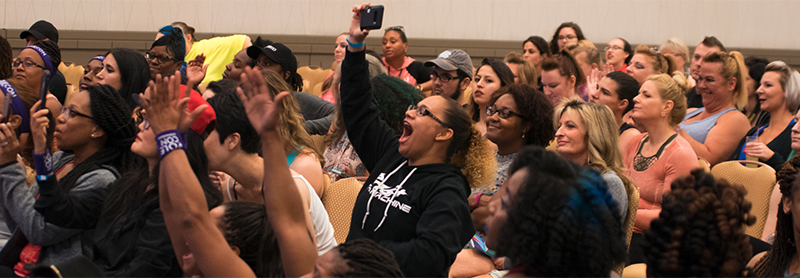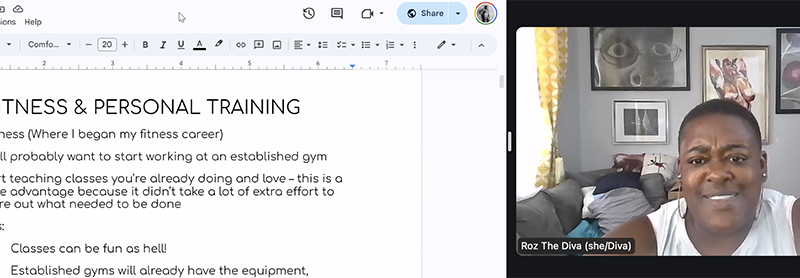[memberonly level=“Group Membership for Businesses of 2-5 individuals, Student, Individual or Solo-Preneur”] Please note that…

How to Start a Podcast
A podcast can be a great way to market your business, reach new customers and create community around your product or service as part of your overall marketing plan. It can also be a way to generate revenue through advertising and sponsorship.
A podcast can also take a lot of time to implement and to keep regularly updated. There may also be a learning curve on technology — both in software and in hardware — for you to investigate as you build your podcast. While there are some technology services that make it easier to create podcasts, those take time away from the learning but can increase your costs.
Read more about how to create your own podcast.
Laying some Groundwork
Before you start your podcast, there are several pieces of information you’ll need to decide on.
First, decide a topic
Consider why you are starting a podcast and who you are trying to reach with your podcast. What questions does that audience have about a topic you are passionate about? Keep your topic broad enough that you can always expand into more topics later but not too broad that it won’t have appeal to your specific audience. The podcast the Aerial Hour is a show for Aerial Entrepreneurs and enthusiasts to share ideas that help navigate this industry. The podcast Yes, a Stripper specifically bridges the understanding gap between strippers and civilians.
Decide on a name
The name of your podcast should be relevant to your topic especially if you don’t have name recognition within your target audience. If you do have name recognition, you could name it “Your Name’s Opinions on Fruit” or just “Thoughts from Your Name.” You want to make it findable and approachable. People will listen to just about anything that Oprah has to say, but will they find your podcast named after yourself?
Top 100 Podcasts show a variety in naming options for the most popular podcasts.
Decide on a format and general length
There is no right length for a podcast. Some are just a few minutes per episode while others might be hours long. The Aerial Hour for instance, claims to be an hour in the title of the podcast.
There are four major types of formats for podcasts:
- Interviews: interviewing popular people to bring content and an audience to your podcast. The Aerial Hour and Yes, a Stripper Podcast generally follow this format.
- Informative Repurposed Content: sharing information you have already created in another format such as an article or presentation
- Stories: usually non-fiction stories although true-crime also make popular podcasts. The podcast Stripcast told stories from Lux ATL about her life.
- Hybrid of the above: maybe you start sharing your content and then occasionally have a guest speaker.
Decide on the structure and regularity
Every podcast should have the same basic structure, usually something like this:
- Intro Music (same each time)
- Welcome to the episode/setting up the episode
- Ad from sponsor or sponsorship message(s) (if relevant)
- Main content of the podcast
- Call to action — if there is something to do or even just to review or like the podcast
- Outro sign off and music (same each time)
By the nature of podcasts, your podcast should be released in a regular amount of time usually weekly or monthly. Don’t over commit by having a weekly podcast if you’re not sure you’ll have the time to do it.
Starting your podcast
Now that you have the basic format of your podcast, you need a few things to start in earnest.
You’ll need some equipment:
- Microphone: a quality microphone is essential!
- Recording/editing software: there are many tools available such as Adobe Audition, Audacity or GarageBand (on a Mac).
- Hosting for your audio files: check with your existing web hosting or technical support before choosing a host.
- Combination tools: there are several tools that provide editing and hosting services as one software as a service concept. None of these are free services.
And some basic marketing:
- Cover Art: to have your podcast featured in the major podcast distribution networks, you need to have a cover for the podcast.
- Music: any music you use should be royalty-free. You can purchase clips online from many sources or you can create your own.
Other things you might need:
- Transcriptions: not all podcasts have them but some people do prefer to read rather than listen to a podcast. This also makes it more accessible for deaf or hard of hearing people to enjoy your podcast.
- Translations: not all podcasts have translations either but it may be relevant for your audience.
- Show Notes: typically if something like a website, article, book or other resource is mentioned during the podcast, you would create show notes and link that information for people to access easily.
Create an editorial calendar or schedule
Preparation is important! Schedule your future episodes in a spreadsheet so you can map any guests, content, topics, key words, sponsors or other information against key dates. For instance, you might want to share your informational content from a workshop after the workshop. Or you might want to make your podcast about a new product or book be the official launch for that product or book. Also make sure you map your personal schedule against your podcast schedule. Depending on your level of ease with audio editing, you may need to budget more time when you are first starting out.
Finalize and launch
Create a few episodes before you launch. This will help you get the kinks out of your process before you develop an audience base who starts to expect your podcast on a certain regularity.
Podcast platforms like Apple or Spotify do not actually host your podcast files. They pull your podcast feed from your podcast host. Make sure you have your hosting set up before submitting. If you use a tool to host and publish your podcasts, it may submit your podcasts easily to the podcast platforms at the click of a button.
Check your analytics after your podcast is launched so you can make adjustments and continually improve your podcast.
Enjoy your podcast!



